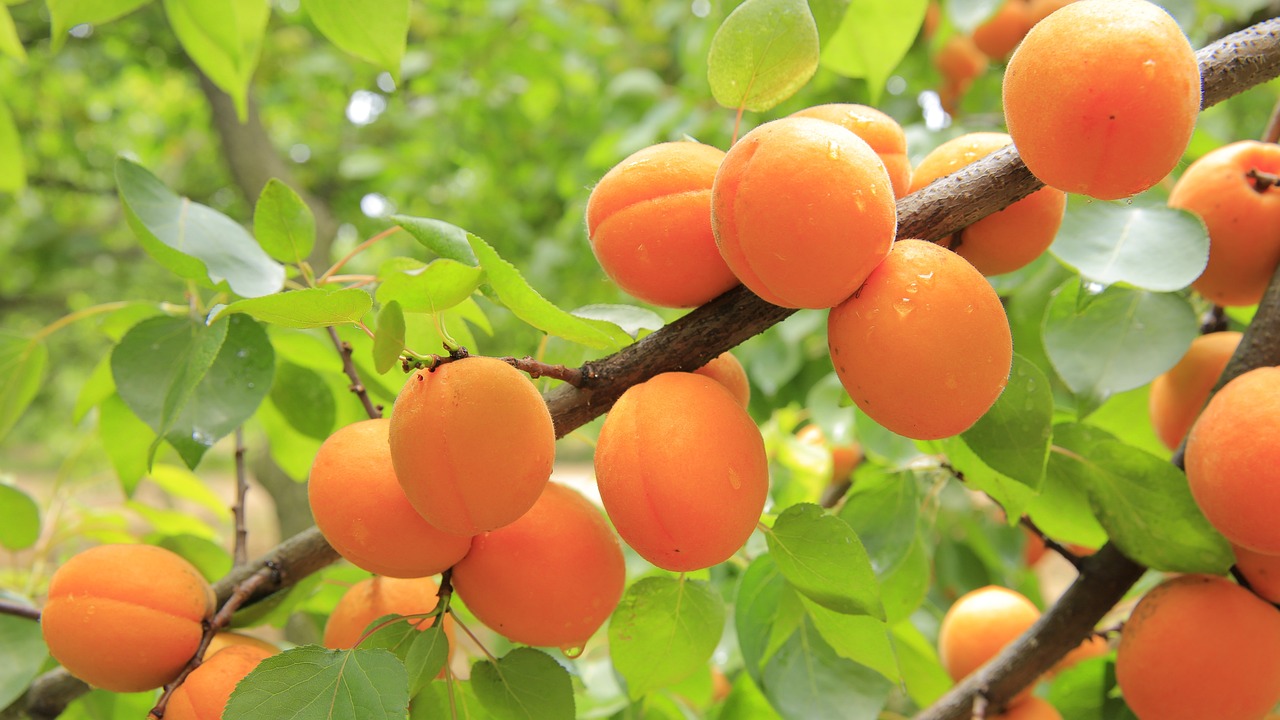

Apricots, the medicinal fruit
Intensely colored, delicate, and incredibly tasty, apricots are the kind of fruit that satisfies your craving for “something good.” And their multiple health benefits demonstrate that we should consume them every day.
Apricots – or Prunus armeniaca, according to their scientific name – are said to have been cultivated for the first time almost 4,000 years ago in China. From there, they then followed the Silk Road, spreading to Central Asia and the Middle East, and later in the Mediterranean area. Today, Turkey and Iran are the largest apricot growers worldwide.
“Eat carrots in order to see better...” We have all heard this constantly as a child, and it’s very true, but the nutritional profile of apricots shows that they would do at least as well in this mission.
High in vitamin A, beta-carotene, and other carotenoids (in translation, the pigments that give color to yolks, tomatoes, carrots, green leaves, fruits, but also flowers), apricots contain lutein, which helps maintain the health of the retina and lens.
Specialists also add the fact that vitamin A supports night vision and boosts immunity, due to its anti-inflammatory role.
Carotenoids, vitamin E, and all the other nutrients in apricots also help reduce the risk of macular degeneration and cataracts.
Eye support is, however, only a small part of the palette of advantages of these fruits. Packed with antioxidants such as vitamin E and vitamin C, apricots can be a real skin “guardian”, helping to protect skin cells from ultraviolet (UV) radiation, reducing signs of premature aging, and improving skin elasticity. And beta-carotene contributes significantly to protect the skin from damage caused by exposure to the sun.
Finally, the flavonoids in apricots are anti-inflammatory and support heart health. Additionally, the high-water content supports hydration and prevents the skin from drying out.
Fragrant, juicy, and full of flavor, apricots are especially appreciated while fresh, but they occupy an honorary place among dried fruits. Once dehydrated, they shrink in size (which can encourage overeating) and become more energy-dense and high in sugars. However, they can be easily preserved and eaten out of season.
The major difference between dried and fresh apricots is the calorie content; one serving, namely one cup of fresh apricots, has about 75 calories, while the same number of dried apricots has about 212 calories. Despite this, diabetics are allowed dried apricots, if they are consumed in moderation. They are also recommended for their high fiber intake, and experts claim that these dried fruits also contain a certain type of antioxidants – chlorogens, catechins, and quercetin, essential in neutralizing free radicals (they are the main cause of oxidative stress).
Apricots have something “extra” compared to other fruits: the kernel can be used entirely for nutritional or cosmetic purposes. Specifically, the kernel hidden in the woody shell of the apricot kernel is a rich source of protein, vitamins, and carbohydrates. It can be consumed as such, or in derived products such as the oil extracted from the kernels or apricot kernel powder/flour. In the food industry, they are often used to make low-fat biscuits and other sweets, while the inedible woody part is used in the cosmetics industry to make products for mechanical exfoliation (scrubs).
The kernels – the scraps that we tend to throw away when we eat fruit – contain an extremely valuable vitamin that cannot be ingested in isolation due to its toxicity, but can be safely assimilated from apricot kernels: amygdalin (or vitamin B17 present in the skin of the core, also called the cure for cancer) would present, according to the experts who analyzed its composition, antitumor, anti-inflammatory, analgesic, and immunomodulatory pharmacological effects.
It has also been demonstrated that apricot kernels can play a role not only in supporting the digestive and reproductive systems, but also in reducing blood sugar and preventing neurodegeneration.
Indulge yourself with a delicious apricot tart that you can whip up quickly in your kitchen.





No Comments